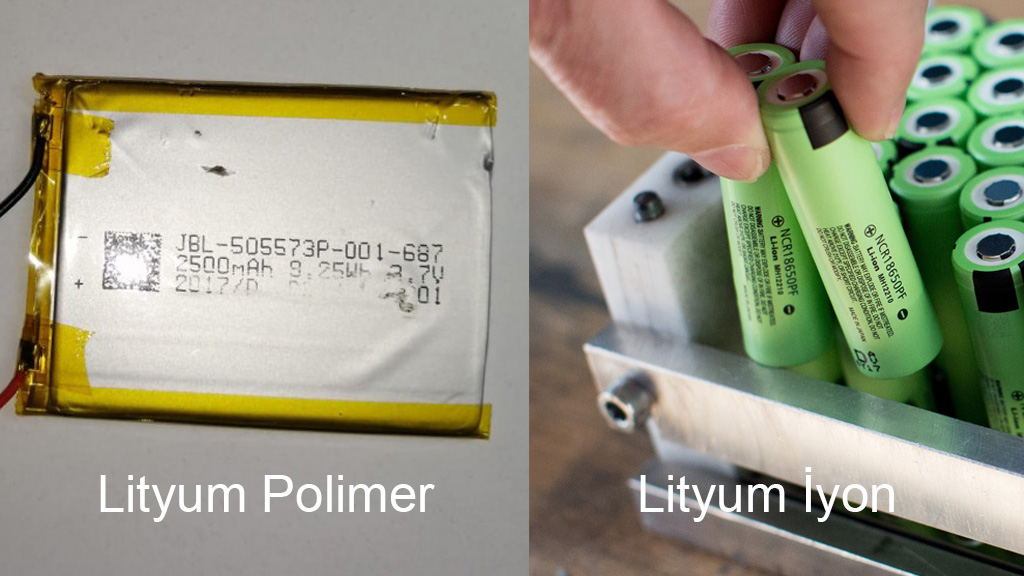Lithium Ion vs. Lithium Polymer
Lithium Ion (Li-ion) and Lithium Polymer (LiPo) batteries are two different types of rechargeable battery technologies. Both utilize lithium-based electrochemical reactions, but there are some fundamental differences:
Type of Electrolyte:
- Li-ion Batteries: Lithium-ion batteries contain a liquid electrolyte. This electrolyte typically includes organic solvents and facilitates the transmission of ions between the cathode and anode. Therefore, lithium-ion batteries are classified as liquid electrolyte batteries.
- LiPo Batteries: Lithium polymer batteries use a solid or gel-like polymer electrolyte. This electrolyte has a more flexible structure, allowing for a greater variety of sizes and shapes for the battery. Lithium polymer batteries are considered solid electrolyte batteries.
Battery Design:
- Li-ion Batteries: Lithium-ion batteries can be designed in cylindrical or prismatic shapes. They often employ a more traditional design and are more commonly found in the market.
- LiPo Batteries: Lithium polymer batteries can be designed in thinner and more flexible structures. This flexibility can be advantageous, especially in designs requiring lightweight and compact batteries.
Energy Density:
- Li-ion Batteries: Generally, lithium-ion batteries have a higher energy density, meaning they can store more energy in a given volume.
- LiPo Batteries: Lithium polymer batteries may have the same energy density, but they often have the ability to create smaller and lighter batteries with potentially lower energy density.
Weight:
- Li-ion Batteries: Lithium-ion batteries are generally heavier and have a denser structure.
- LiPo Batteries: Lithium polymer batteries, while having the same energy capacity, can be lighter.
The choice between these battery types depends on the intended use and specific requirements. Lithium-ion batteries are more commonly used and offer a broader range of applications. However, lithium polymer batteries may provide a better fit for certain applications due to their flexibility and lighter weight.


